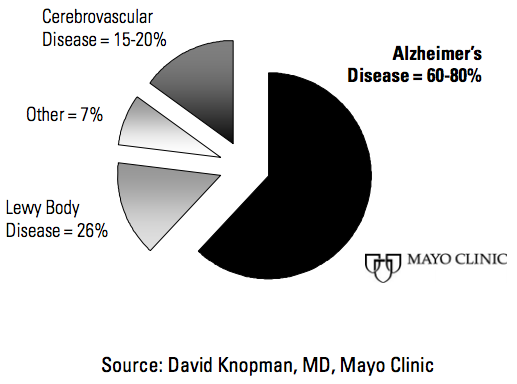 Forgetfulness is common among elderly people. But how can you tell the difference between your older parent or grandparent’s temporary, age-related forgetfulness, and new-onset cognitive disorders like dementia or Alzheimer’s disease, which might require support services or moving to a residential memory care to safely manage?
Forgetfulness is common among elderly people. But how can you tell the difference between your older parent or grandparent’s temporary, age-related forgetfulness, and new-onset cognitive disorders like dementia or Alzheimer’s disease, which might require support services or moving to a residential memory care to safely manage?
It can be a bit tricky. But there are methods of distinguishing between memory lapse and memory loss. Today, let’s discuss the signs and signals you can look for when your older loved one is exhibiting possible symptoms of dementia.
“Normal” forgetfulness doesn’t typically reduce an older person’s quality of life
A grandparent who forgets which year she started working in New York or a parent who forgets a long-gone neighbor’s first name isn’t necessarily showing signs of dementia. Alzheimer’s disease and other cognitive disorders cause people to forget information that most people would consider more important — information they would typically use in daily life, or otherwise often recall.
Polypharmacy situations (when your loved one is taking multiple medications and/or supplements on a regular basis), can be a primary culprit.
An older person showing signs of new-onset dementia, for example, might begin forgetting to go to important appointments or regular social events. Your parent might miss consecutive doctor appointments, miss a grandchild’s birthday, or forget about a weekly lunch date that he or she has been attending for years with a best friend.
Of more concern, an elderly person with developing Alzheimer’s disease might forget to take daily medications, forget to bathe or dress, or fail often to take the garbage out for its regular collection. If you see these things occurring, you have more cause for concern.
In dementia, motor skills are affected
“Normal” age-related forgetfulness doesn’t cause an older person’s handwriting to deteriorate. It doesn’t affect a person’s ability to safely walk from the bedroom to the bathroom. Nor does it cause an older person’s hands or head to shake or move uncontrollably.
 Neurological disorders that affect motor skills, including Parkinson’s disease, Alzheimer’s disease, or Lewy body disease, can cause severe degradation of a person’s fine motor and general motor skills. If your parent or grandparent is exhibiting signs of motor impairment, he or she should certainly be evaluated by the family doctor, who may in turn refer to a neurologist.
Neurological disorders that affect motor skills, including Parkinson’s disease, Alzheimer’s disease, or Lewy body disease, can cause severe degradation of a person’s fine motor and general motor skills. If your parent or grandparent is exhibiting signs of motor impairment, he or she should certainly be evaluated by the family doctor, who may in turn refer to a neurologist.
A word of caution, though: shaking hands or motor impairment can be caused by a variety of conditions that aren’t dementia. And some of them are acute situations that require immediate, lifesaving interventions.
Missed medications or adverse medication interactions, especially in polypharmacy situations (when your loved one is taking multiple medications and/or supplements on a regular basis), can be a primary culprit. Medication-induced motor affectations are serious, but they are often reversible when a doctor adjusts your loved one’s prescriptions or drug regimen. Electrolyte imbalances are also something your loved one’s family doctor might want to rule out.
And other causes might include serious, but non-dementia diseases. Those include strokes, spinal injuries, and infections, or even uncommon diseases like ALS (also known as Lou Gehrig’s disease), brain or spinal masses, or meningitis, can cause dementia-mimicking symptoms. If you notice your loved one is having difficulty walking or balancing, he or she should be immediately seen by a doctor.
Dementia can change a loved one’s personality.
Someone with new-onset dementia may show social symptoms or personality changes. A grandparent who was previously a social butterfly might become withdrawn. A loving older parent may begin exhibit paranoia and irrational mood swings. Or, a person with dementia may begin to speak and act in an almost childlike manner.
Again, such symptoms aren’t necessarily dementia. They can be caused by clinical depression, psychosis, medication interactions, strokes, infections, chemical imbalances and more.
If you notice personality changes in your loved one, he or she should be seen by a doctor. And if those changes are sudden (occurring over the course of minutes to hours), a trip to the emergency room is probably necessary.
If you have questions about your older loved one’s condition, don’t hesitate.
The sooner an older loved one with new-onset dementia is seen by a doctor, the quicker he or she can begin memory care therapies that could help to preserve his or her cognitive function, or at least improve quality of life.
If your loved one has been diagnosed with dementia, Parkinson’s, or Alzheimer’s, and needs assisted living or memory care services in Cincinnati or the surrounding Tristate region, Episcopal Retirement Services is here for your family.
Click here for more information about our premier memory support services.












